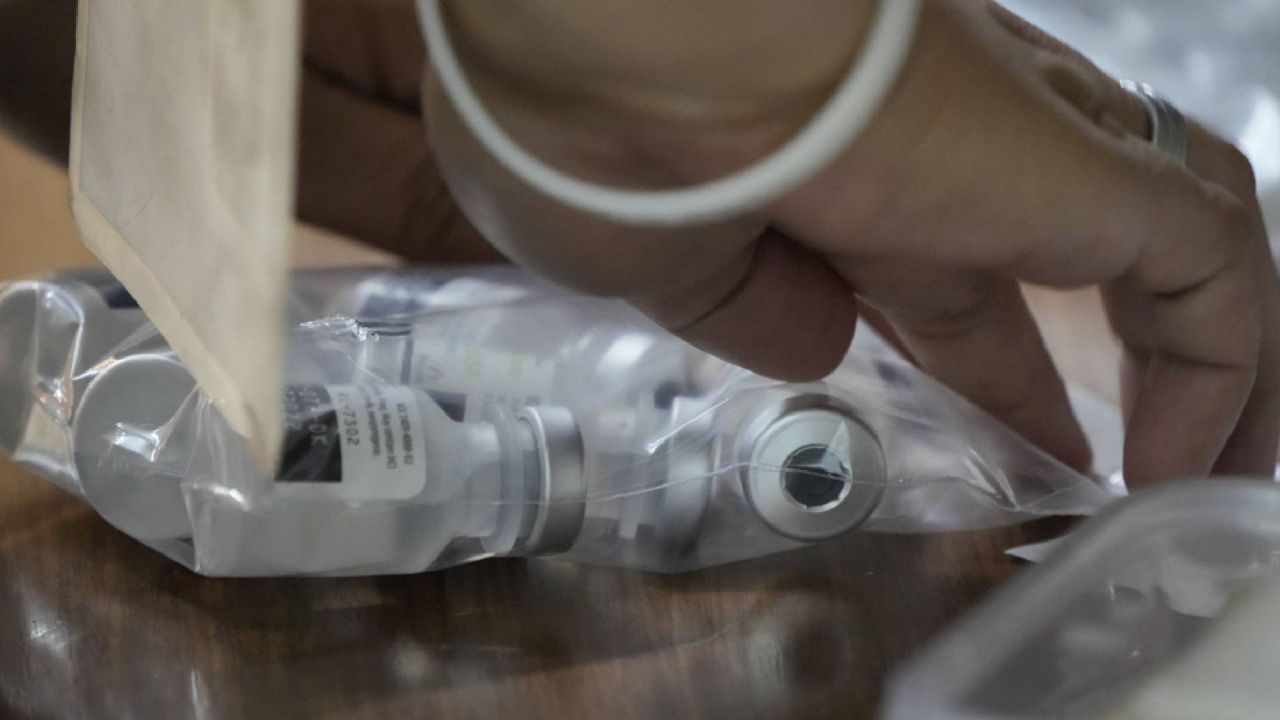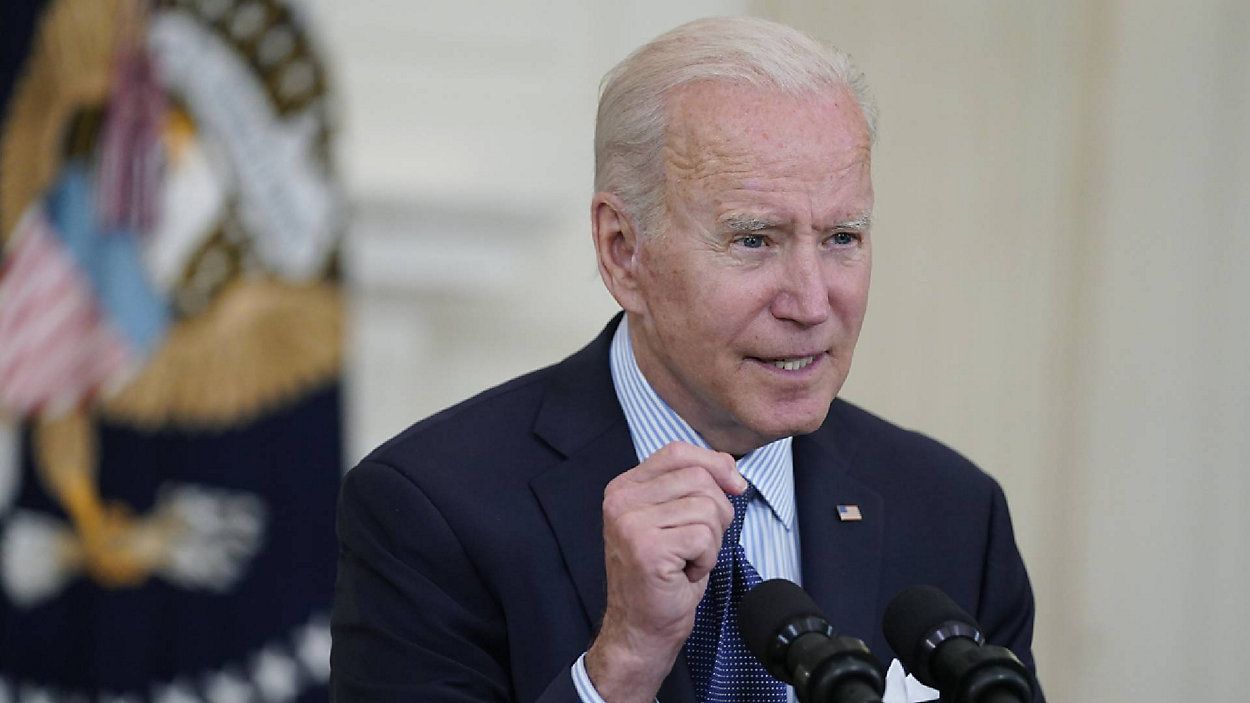The Biden administration announced Monday its plan for sharing another 55 million vaccine doses with countries around the world, wrapping up its initial promise to contribute 80 million doses by the end of June.
The doses come from the United States existing vaccine supply, which is now stocked with more than enough shots for Americans this year.
Most of the 55 million shots allocated this month will go to COVAX — a global vaccine sharing effort overseen in part by the World Health Organization — while a quarter of them will go to U.S. priorities such as South and Central American countries, select African countries and several parts of the Middle East, including the West Bank and Gaza.
But it's not clear exactly when the doses would ship, despite the administration's original committment to send them by the end of June. Monday's fact sheet referred to the "allocation" of doses rather than shipments.
White House Press Secretary Jen Psaki admitted doses would likely go out after this month.
"Our biggest challenge is logistics, is the fact that there's not a playbook for this and there are challenges as it relates to getting these doses out to every country," she said.
The 55 million doses are expected to be a combination of Moderna, Pfizer and Johnson & Johnson, since the millions of AstraZeneca doses already manufactured in the U.S. are not yet approved by health authorities for export.
After President Joe Biden’s initial donation of 80 million doses, which was quickly criticized for being insufficient, the president then announced a U.S. commitment to purchase 500 million Pfizer-BioNTech doses to share with the world by mid-2022.
“This is about our responsibility, our humanitarian obligation to save as many lives as we can,” the president said when making the announcement in the United Kingdom earlier this month.
Those doses will go to 92 low- and lower-middle income countries along with the African Union.
While in the U.K. for the Group of Seven summit, the president also helped secure a commitment from the other member countries to contribute doses, to the tune of 1 billion shots in total.
Still, some world leaders said that the G7 pledge was not enough to aid low-income countries as quickly as needed to defeat the pandemic, especially without logistical support.
“We need more than that,” said United Nations Secretary-General Antonio Guterres after the announcement.
“We need a global vaccination plan,” he added. “We need all the countries that are meaningful in the production of vaccines...to come together and to put in place an emergency task force to guarantee the design and then the implementation of that global vaccination plan.”
On Monday, the White House outlined geographical plans for this month’s allocation of 55 million doses, 41 million of which will go to COVAX and 14 million of which will go to specific countries and regional priorities for the United States.
The U.S. goals for sharing the vaccines include preparing for surges, prioritizing health care workers and aiding vulnerable populations. And “the United States will not use its vaccines to secure favors from other countries,” an administration fact sheet reiterated.







